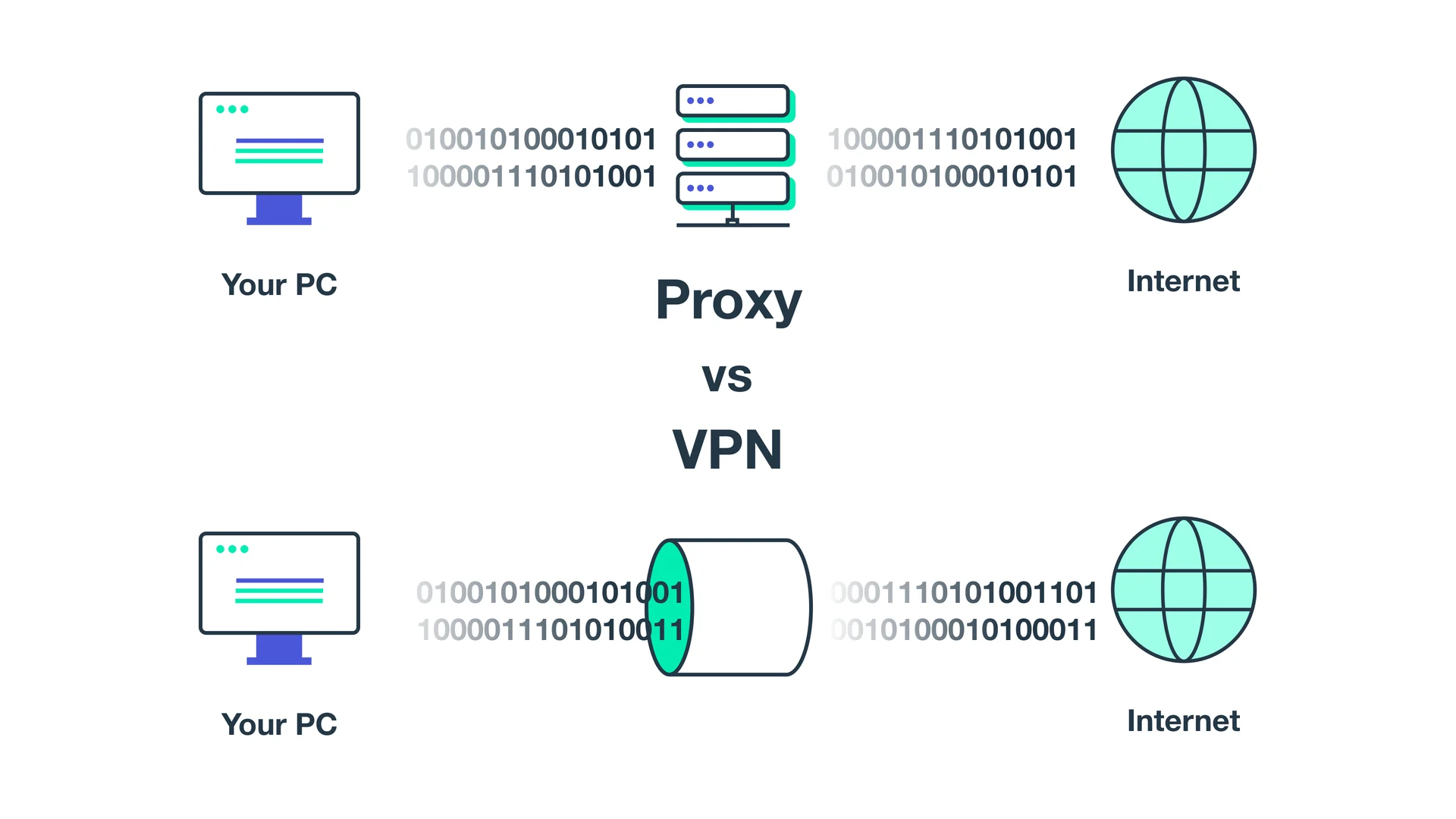Proxy vs VPN: Which Offers the Best Balance of Speed and Security?

In the digital era, such a choice as the one between a proxy and a VPN should be really hard, considering matters of security and privacy. Both of them can enhance privacy and security but do so by different methods, each carrying its own fair share of advantages and disadvantages. This paper attempts to dissect the functionalities of both, evaluating their performance on matters of speed and security to help you decide which one strikes the best balance for your needs.
Understanding Proxies
What is a Proxy?
A proxy server acts as an intermediary to perform filtering of client requests when seeking resources from another server. It is an intermediate server, which is between your gadget and the Internet, with an anonymous layer in between. Learn more from this article.
Various Types of Proxies:
- Anonymous Proxies: They will hide your identity, but they will not protect the IP address of your Internet Service Provider (ISP).
- SOCKS Proxy: Most versatile and therefore often used for the purpose of torrenting and P2P file sharing.
- Transparent Proxies: They don't hide your IP address and are typically used for caching.
The VPN Phenomenon
VPN Definition
A VPN extends a private network across a public network and enables users to send and receive data across shared or public networks as if their computing devices were directly connected to the private network.
Key Features of a VPN
- Encryption: VPNs employ very powerful encryption protocols to secure data.
- IP address masking: VPNs mask your real IP address to provide some form of anonymity.
- Kill Switch: A feature that disables the Internet connection on the device in the event the VPN tunnel were to fail.
Speed: A Vital Factor
Proxy Speed Factors:
- Proxies can be faster than VPNs because they only exchange your IP address but do not encrypt your data.
- The speed is very much relative to the place of the proxy servers and its number of users.
Factors for VPN Speed:
- A VPN usually becomes slow because encryption takes place, calling for more processing power.
- It provides you good speed and a secure connection through quality VPN, with optimized servers and protocols.
Security: The Paramount Concern
Proxy Security Drawbacks:
- Yes, proxies can hide your IP, but they don't encrypt the data that's now ripe for the intercept.
- Some proxies keep logs of your activities, which is a matter of privacy.
VPN Security Profits:
- VPNs are encrypted end-to-end, and the data is unreadable even in case of a compromise without the key.
- Reputable VPNs have a strong no-logs policy, which works to advance the degree of.
Use Cases: When to Use Which
Ideal Proxy Situations:
- Bypass Geo-Restrictions: Needed if the main goal is to access content from specific regions, with relatively less concern about protecting information.
- Light Browsing: For everyday surfing where privacy is not the utmost concern.
Cases That Need VPNs:
- High-Risk Activities: These include torrenting and watching the dark web, respectively—the kind of activities that are high risk and hence require a VPN.
- Business Application: VPNs provide secure remote access to a company's networks.
Comparing Specifics: Features and Drawbacks
Proxy Drawbacks:
- Less security features available.
- Possibility of keeping logs.
- Poor performance due to shared use.
VPN Drawbacks:
- May be more expensive, given the quality of the service you obtain.
- Expect slightly lower speeds, especially with a free VPN.
The Ideal Balance of Speed and Security
Finding the Right Balance:
This shall be pegged on the need for security rather than the need for speed on most occasions. For instance, when one is more focused on high security actions like online banking or communication of a confidential nature, then the VPN is the tool of choice. If speed is a major concern and not security, then you will want a proxy.
Recommendations:
- For the Average User: A reliable VPN with a good balance of speed and security for everyday use would be much better.
- Power Users: Power users who need the best security—whatever it costs in terms of speed—should go for a premium VPN service.
Final Thoughts
In essence, the proxies do hold an element of privacy in them in that sense, and actually, they are faster, but they lack providing the robust security details that a VPN inherently provides. On the flip side, VPNs provide a complete solution of maintaining privacy and security at the cost of speed. Therefore, the tradeoff, which should be between a proxy and a VPN, is within the purview of your specific need, the sensitivity of your online activities, and the tolerance of potential trade-offs on speed.
When selecting a VPN, consider strong encryption, a no-logs policy, a large server network, and a reliable kill switch. A proxy would do for that time when speed really matters and security is of little concern. Ultimately, the best balance between speed and security would be the one that aligned with your personal requirements and online behavior.